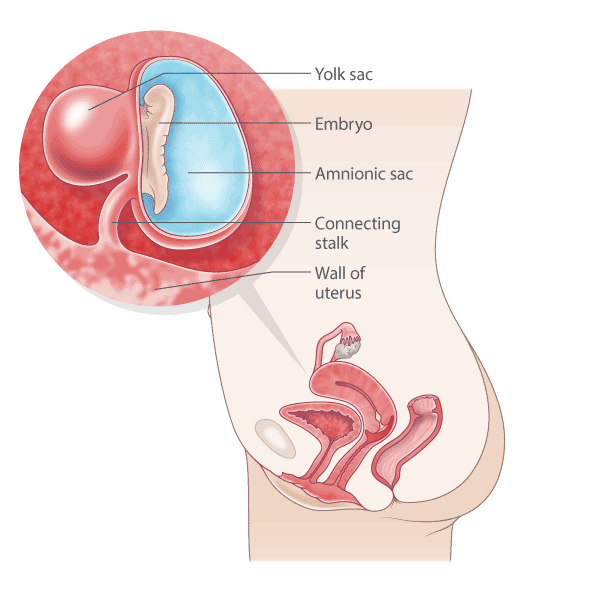You at 5 weeks pregnant
‘Hmmm, no period’, you think. ‘Could I be pregnant?’
Now could be a good time to do a home pregnancy test if you’ve missed a period and you’ve been sexually active. Pregnancy tests measure the amount of a hormone called human chorionic gonadotropin (HCG). Different kits show results in different ways, so read and follow the instructions carefully.

A positive pregnancy test
Pregnancy is often something to celebrate. But sometimes it can come as a surprise or shock. And even if you’ve been planning to have a baby, finding out that you’re pregnant can bring some mixed emotions or uncertainty about what lies ahead.
Your pregnancy experience can be affected by other things going on in your life, like:
- whether your pregnancy was planned
- whether you have a partner
- how much help you expect to have with raising your child
- how long it took you to get pregnant
- whether you’ve had a miscarriage, stillbirth or neonatal death in the past
- whether you’ve had medical assistance, like IVF
- whether you’re in a stable relationship
- whether you’ve felt pressure from your partner or family to get pregnant.
Sharing the news
You might want to think about when and how you'd like to share the news with others. If you have a partner, it's a good idea to talk with them about this. Planning how you'd like to share the news can help you avoid hurt feelings, disagreements and the chance that excited family and friends spread the news for you!
Be prepared for a variety of reactions from people when you tell them your pregnancy news.
Signs of early pregnancy
This week you might be experiencing signs of early pregnancy. For example, you might:
- feel more tired than usual
- want to go to the toilet more often – especially at night
- feel nauseous or even vomit
- feel some tenderness in your breasts.
Morning sickness is the nausea, dry-retching and vomiting that you might experience during pregnancy. Morning sickness is common, and symptoms might range from mild to severe. If you’re having very severe symptoms, see your GP.
Your baby when you’re 5 weeks pregnant
From now, your baby is called an embryo. Inside the amniotic sac, from head to tail, your baby will be about 2.5 mm long at the end of this week. Your baby’s brain, heart and spinal column have started to form.